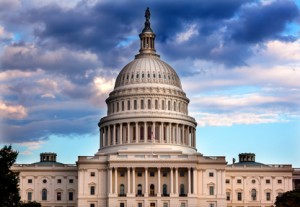 U.S. lawmakers urged the Federal Communications Commission and the Federal Trade Commission to reconsider exemptions to the FCC’s new proposal to update rules that protect Americans from unwanted sales calls, saying that the reforms may not be effective in reducing TCPA violations.
U.S. lawmakers urged the Federal Communications Commission and the Federal Trade Commission to reconsider exemptions to the FCC’s new proposal to update rules that protect Americans from unwanted sales calls, saying that the reforms may not be effective in reducing TCPA violations.
In advance of the FCC meeting to vote on Chairman Tom Wheeler’s proposal, U.S. Rep. Tony Cardenas, D-Calif., and fellow members of the House Committee on Energy and Commerce Reps. Jerry McNerney, D-Calif., Leonard Lance, R-N.J., and Gus Bilirakis R-Fla. said the increased TCPA rules in the FCC’s proposal may in fact make it easier for companies to target consumers, rather than protecting them.
The representatives’ letter to Wheeler and FTC Chairwoman Edith Ramirez notes that when the TCPA was enacted in 1991, cell phone proliferation was around three percent. Today, 44 percent of American homes have only wireless phones. The increase of mobile phones over the past two decades has exposed the weaknesses in the current TCPA rules, as the FTC and FCC received nearly a combined two million consumer complaints regarding the TCPA and unwanted calls in 2014.
The new rule proposal, set to be voted on at the FCC Open Meeting on June 18, may not be effective, assert the congressmen. The yet unseen proposed rule is suspected to open several exceptions to the TCPA, including banking alert and prescription reminders. However, the representatives are concerned that the exemptions “could weaken the effectiveness of the current prohibitions on unwanted calls and the current statutory limits on fines and damages may not sufficiently deter bad actors, regardless of the rules.”
The U.S. Chamber of Commerce also criticized the proposal last week, according to Law360. The Chamber’s executive vice president of legal reform, Harold Kim, and senior vice president of regulatory affairs, William Kovacs, say the proposal’s new restrictions are too favorable toward consumers. Furthermore, the new rules will lump “legitimate” businesses together with “abusive” telemarketers, according to their letter to FCC officials. “[The TCPA] was not intended to be enforced in such a manner against businesses calling their own customers,” said the chamber’s letter.
In its letter, the Chamber expressed concern over the reforms being issued through a declaratory ruling, saying:
The primary danger in issuing directives in a declaratory ruling (i.e., companies must do this with reassigned number notifications, and do that with revocation notifications) is that the very active TCPA Plaintiffs’ bar is likely to argue that anything in that ruling merely clarifies what was always true for the TCPA, so that any deviation from what is set forth in the declaratory ruling in the past four years would form the basis of new litigation. Indeed, the Chamber is concerned that the onslaught of TCPA litigation in recent years will be eclipsed by new litigations brought with arguments that a company did not comply with requirements “made clear” by this declaratory ruling.


